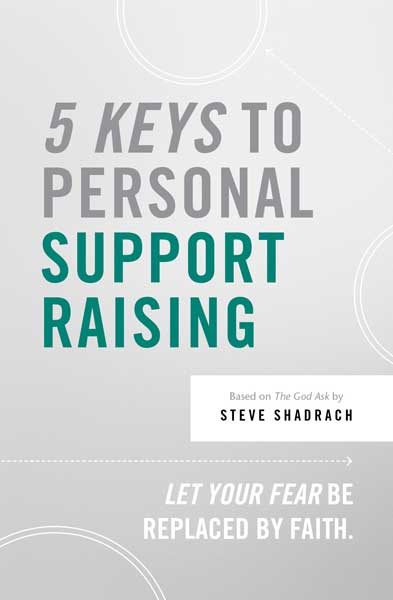“The greatest enemy [to sending] other than Satan himself is educational debt.” – Dr. Albert Mohler, President of Southern Baptist Seminary
If Fox Business News is correct, 7 in 10 college graduates have significant student loan debt. They claim the average new graduate in 2016 will walk the stage $35,000 in the hole. That is truly staggering. One implication for us—7 out of 10 recent grads considering full-time ministry are probably also carrying that crippling weight. But this is a relatively new problem: Student debt has tripled over the past eight years as college tuition costs 17 times more than it did 40 years ago.
Increasingly, student loan debt is becoming the number one obstacle preventing graduates from doing full time ministry.
Johnnie Moore, Senior VP of Communications at Liberty University, shares what numerous mission agencies have revealed to him over the years, “What they’ve told us over and over is that the number one barrier to getting people to live and work overseas was debt. They called it the black hole.”
Luke Womack, founder of The GO Fund (and author of the article: Satan, Starting Salaries, & Student Debt) concurs when he adds, “Thousands of US college graduates desire to willingly place themselves on the front lines of the mission field for the sake of the Gospel of Jesus Christ. Tragically, many of them will never go because of the barrier created by their student debt.”
Let’s summarize the problem:
- Almost without exception, you need a college degree to work in full-time ministry.
- The cost of a college degree is 17 times more expensive now. It’s becoming nearly impossible to work your way through college and emerge debt free. In the past 15 years, I’ve met one student who’s done it. One.
- 7 out of 10 graduates who want to go into full-time ministry find it very difficult to do so.
That’s a serious problem, and if you are considering full-time ministry and have student loan debt you may feel like you have no option but to get a secular job at graduation. But, here’s a little-known fact: You can go into full-time ministry, raise support AND aggressively pay off debt! That’s right. You don’t have to choose. You can do both!
Many graduates have a perception that their debt is so high that monthly payments can’t be made on a missionary salary. For some that may be true. But increasingly, it is possible to raise additional support to pay off student loan debt. Kyle, a missionary with Pioneers, said, “For most students coming out of college, I recommend this option. In my experience, many mission-minded people are not able to land jobs that pay enough to kill debt fast. So, while the ideal is a high-paying job, many end up working in a position that pays barely enough to live on. Don’t be ashamed to add a certain amount of money to your [support] budget to repay student loans, and don’t hide behind a rock when people ask about it!”
Many ministries are proactively changing what level of student debt they allow a new staff candidates to have when being accepted by the organization. I know the organization that I work for, Cru, has proactively raised debt limits over the last decade to keep pace with growing student loan debt. Todd Ahrend, in his book In This Generation, surveyed 10 mission agencies about their policy regarding college loans limits for new staff. Two did not allow any student debt at all. The other eight had a debt limit between $20,000 and $25,000. Note that Todd’s book came out over 5 years ago, so I would guess those limits are even higher now.
I personally know a couple who had $60,000 in student loan debt, but raised their full support and now minister on a college campus. If you embark on raising your support and choose to include your student loans into your overall personal and ministry budget, I suggest learning the facts about the rising cost of college and your specific plan to aggressively pay it off. This will help you confidently field questions from donors.
Another obstacle in relation to student debt I have observed is that college graduates heading into support raising and ministry often have a tremendous amount of guilt and even embarrassment. They feel unspiritual, foolish, and enslaved, not knowing there are myriads of others out there in the exact same boat. I’ve found many graduates are afraid to share with anyone how much debt they have. They somehow feel unqualified for ministry and that their debt is a stain on their character.
I want you to know something: You are not alone! Your debt does not define you.
It may feel overwhelming to crawl out from under the oppressive weight of debt, but God can and will help free you and use you in mighty ways in full-time ministry. It is not our perfect financial or moral record that make us worthy of our calling. Paul puts it this way in 2 Corinthians 3:5-6, “Not that we are sufficient in ourselves to claim anything as coming from us, but our sufficiency is from God, who has made us sufficient to be ministers of a new covenant.”
Now, you might be asking, “What if I Have Significant Debt?” I know, it was an incredible pep talk, but I need to insert a tad of reality for a moment. If you have more than the average school debt (say, well over $35,000) you might consider delaying your dream of going into full-time ministry and get a job outside of ministry for a period of time to aggressively pay off debt. But beware! If you truly desire to make it to the field someday, choosing this route requires an incredible amount of focus, self-discipline, and perseverance. I’ve seen many, with the best of intentions, get sucked in by the American Dream. They were “entangled by the affairs of everyday life” as Paul told Timothy to steer clear of in 2 Timothy 2:4.
In fact, the only times I’ve seen a successful workplace detour like this succeed is when missionary candidates have stated a specific and publicly stated plan—with “strong arm” friends to hold them accountable. It’s too easy to rationalize: “If I just worked 6 more months, I could save another $30,000 for a rainy day. That might help me be a better steward for God.” And then: “We have a baby on the way, and I need to save for our first house before I go into ministry.” On and on and on it goes. But for those few who’ve actually been able to navigate this mine field and finally make it to their ministry assignment debt free, it has enhanced their character and work ethic substantially.
We have a couple on our staff team who have $20,000 in debt and have chosen a creative alternative to the “workplace detour” example above. He is an intern in full-time ministry and she is a nurse. As newlyweds they are choosing to live simply, on his meager intern salary, and plan to use her income to pay off the $20,000 in only one year. Go for it!
Whatever route you take, realize that student debt does not have to derail your calling to full-time ministry. If the cause is worthy, the cost is irrelevant. He is worthy! So take radical steps to aggressively attack your debt while you pursue full-time ministry.
Have you found student debt to be a barrier for either yourself or friends?


